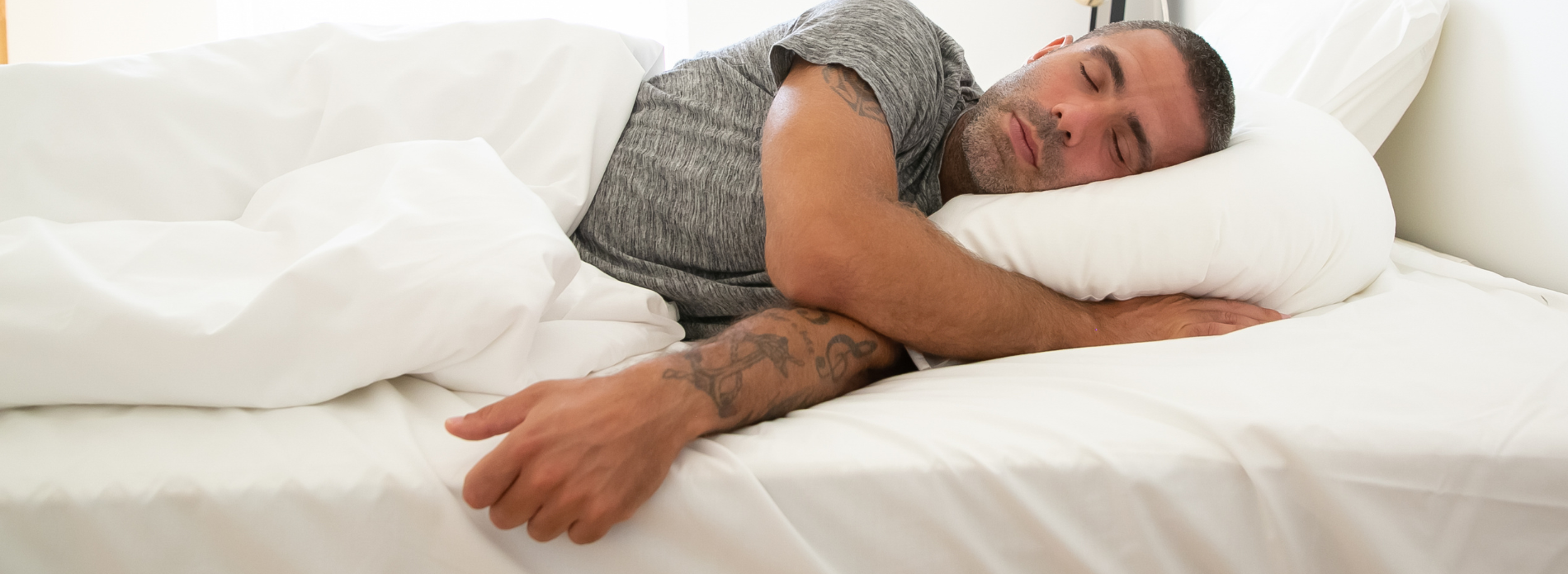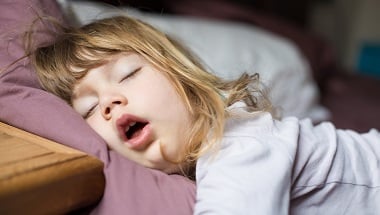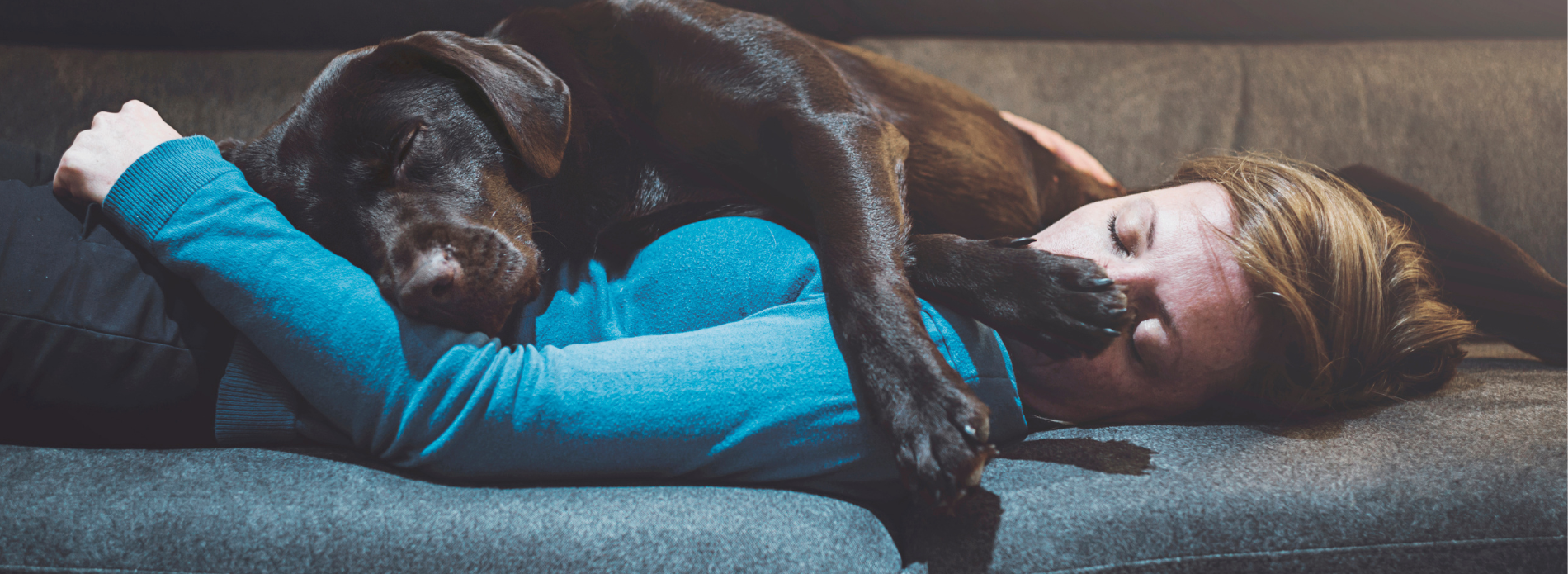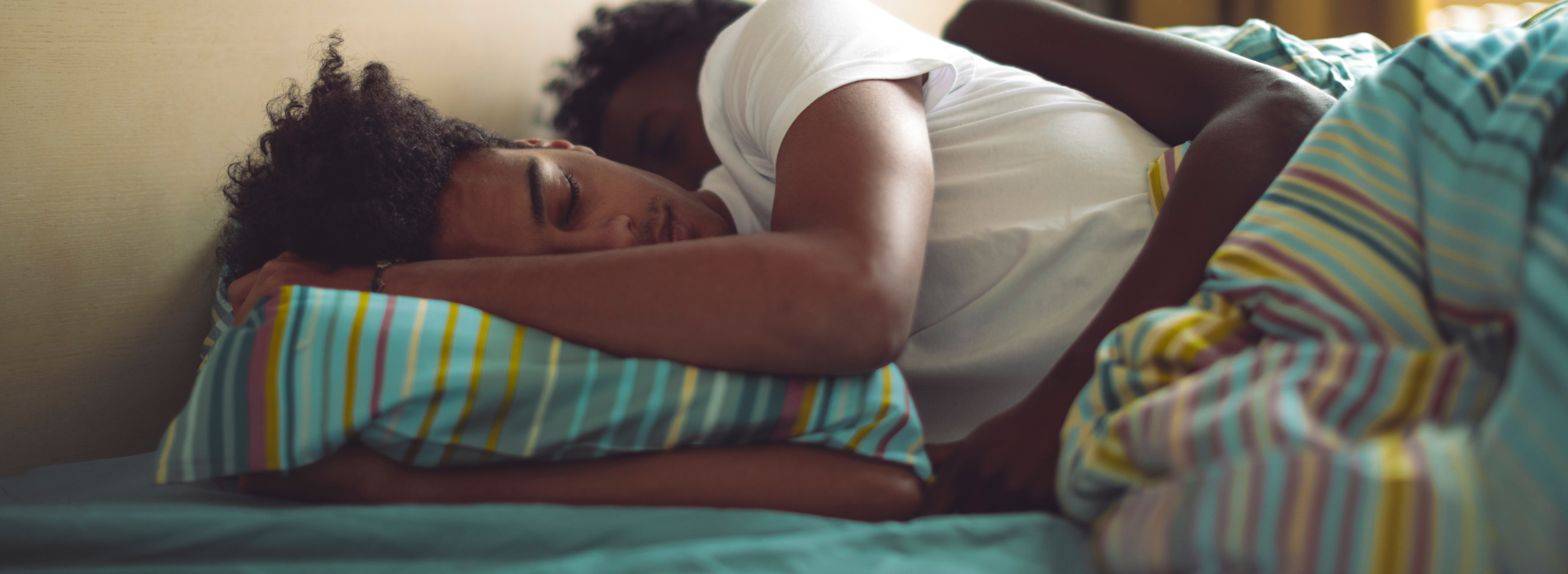It’s recommended that adults get between 7 to 9 hours of sleep per night, but the specific amount can vary from person to person. Too little or too much sleep can be associated with poor health outcomes, such as high blood pressure, type 2 diabetes, or depression.1 The quality of your sleep is also important, as it supports mental and physical health and contributes to overall quality of life.
If you don’t feel refreshed when you wake up, or you feel tired during the day, it could be a sign you’re not getting enough good quality sleep. There are a number of factors that can contribute to poor sleep, including various disorders. We’re taking a look at some of these sleep problems in more detail and exploring what to do if you’re affected.
Possible causes of poor sleep
- Work-related stress.
- Home life stress.
- Mental health problems (e.g. depression, anxiety, bipolar disorder).
- Medical conditions (e.g. conditions involving chronic pain).
- Hormone shifts during menstruation or menopause.
- A poor sleep routine.
There are a variety of sleep problems that can affect people in different ways. These can include acute or short-term problems, and longer more chronic conditions.
Not all sleep problems can be attributed to a sleep disorder condition, and sometimes improving your sleep routine can solve the problem. The list below is not a diagnostic tool, however, if you do feel you have an ongoing sleep problem or relate to any of the conditions listed below, seek expert medical advice.
Different types of sleep problems
1) Insomnia
Insomnia is a sleep disorder which can cause trouble when trying to fall and/or stay asleep. Insomnia can be acute or chronic, causing sleep issues that last for three months or more. It can significantly affect your daytime function, including your performance at work or school, as well as your social and family life.
Untreated insomnia, leading to long-term sleep deprivation, is linked to several harmful effects, including lower quality of life, increased risk of heart diseases, diabetes, and substance abuse.2
Symptoms of insomnia aren’t limited to sleeping difficulties alone, having daytime struggles also play a role. Some common sleep issues that can signal the presence of insomnia include:
- Trouble falling asleep and staying asleep.
- Early morning waking.
- Resisting sleeping at bedtime specifically for teens and children and struggling to fall asleep without a care giver’s support.
- Fatigue.
- Impaired memory and concentration.
- Irritability and disturbed mood.
- Trouble performing in work, school or social scenarios.
- Decreased motivation.
- Sleepiness.
There is currently no single established cause for insomnia. However, factors associated with a greater risk of experiencing insomnia include, but are not limited to:
- Being a woman or assigned female at birth.
- Older age.
- Medical conditions such as diabetes or chronic pain.
- Mood disorders including depression and anxiety.
Not everyone with one or more of these risk factors will have insomnia, and having insomnia doesn’t mean you will have one of these risk factors.
2) Sleep apnoea
Sleep apnoea is when your breathing stops and starts during your sleep due to the airways becoming too narrow. Someone with sleep apnoea may have hundreds of these episodes throughout the night, disrupting their sleep. The most common form is obstructive sleep apnoea (OSA), this is when the throat relaxes and temporarily obstructs breathing.3
Central sleep apnoea (CSA) is another form.
CSA results when the brain temporarily stops sending signals to the muscles responsible for breathing. It often occurs as a consequence of another medical problem, such as:
- an infection or injury affecting the brain stem,
- heart or kidney failure,
- stroke,
- or excess growth hormone production.
Symptoms of sleep apnoea mainly occur while sleeping, however the disruption to sleep can also cause sleep deprivation and impact daytime functioning.
Sleep apnoea can cause:
- Stopping and starting of breathing.
- Making gasping, snorting, or choking noises.
- Frequently waking up.
- Loud snoring.
- Tiredness.
- Trouble concentrating.
- Increased mood swings.
- Headaches.
Without treatment, sleep apnoea can lead to other problems such as high blood pressure, type 2 diabetes, heart disease, increased chance of a stroke, depression or mood changes, and increased chance of accidents occurring.
Risk factors for sleep apnoea
- Obesity.
- Sleeping on your back.
- Smoking or drinking alcohol.
- Getting older.
- Having a large neck.
- Having large tonsils or adenoids.
- Having other family members with the same condition.
Fortunately, effective treatment is available, including lifestyle changes such as losing weight, giving up smoking and reducing alcohol consumption.
Devices used during sleep to aid breathing may also be recommended for patients suffering with either OSA or CSA. Some types of CSA can also be treated with medications that stimulate breathing. Treating the condition that is causing CSA can often help manage symptoms. For example, if CSA is due to heart failure, the goal is to treat the heart failure itself.4
3) Narcolepsy
Narcolepsy is a sleep disorder that can prevent a person from choosing when to wake or sleep. It’s a rare long-term brain condition that makes it difficult for a person's brain to regulate their sleeping and waking patterns.
Symptoms of narcolepsy include:
- Excessive daytime sleepiness.
- Sleep attacks (falling asleep suddenly without warning).
- Cataplexy (temporary loss of muscle control resulting in weakness).
- Sleep paralysis.
- Excessive dreaming and waking in the night.
Many cases of narcolepsy are thought to go unreported, however it’s estimated to affect 30,000 people in the UK.5
Narcolepsy can have a significant impact on daily life, with sleep attacks being a worrying aspect and difficult to cope with emotionally.
4) Restless legs syndrome and periodic limb movements of sleep
Restless legs syndrome (RLS) is a condition of the nervous system causing an overwhelming sensation to move your legs. Unpleasant "creeping" sensations or twitching in your legs, calves, and thighs, mainly during the night, could be signs of RLS or periodic limb movements of sleep (PLMS).
In PLMS, the movements occur only during sleep, whereas in RLS the movements may occur while you’re awake or asleep.
Severe cases can disrupt and hinder sleep, causing sleep deprivation. There’s no obvious cause for most cases of restless leg syndrome, however following healthy daytime habits, such as exercising regularly, quitting smoking, and avoiding caffeine and alcohol leading up to bedtime can be beneficial.
If the symptoms are more severe, investigation might be required into the cause, and medical advice should be sought.
5) Delayed sleep phase syndrome
Delayed sleep phase syndrome (DSPS) is a misalignment between the circadian rhythm (the body clock which dictates when you’re tired and when you wake up naturally) and the social and physical environment. This means a person's sleep can be delayed past a conventional bedtime, which can cause issues when trying to fall asleep or wake up before the body clock is ready.
This can lead to excessive daytime sleepiness and sleep deprivation, especially if you’re required to wake up for work or school. DSPS can often lead to complaints of insomnia and affect a person's mood and behaviour.6
Should I keep a sleep diary?
Working out why you might be having sleep problems or issues can be difficult and daunting. A sleep diary can be a great place to start. Tracking when you sleep well or poorly, each time you wake up, alongside the routine you followed leading up to bedtime can help to highlight patterns.
Using your sleep diary, you might discover some possible reasons for sleep problems and patterns that lead to certain troubles you’re having.
Start keeping a sleep diary as soon as you notice a sleep problem and record information over a two-week period. This will be useful evidence if you require further assistance from a doctor or healthcare professional about your sleep issues.
Where to get help for sleep problems
There’s a lot you can do yourself to reinstate sleep patterns and teach your body and mind to relax. However, in some instances, medical help is essential in getting a good night's sleep.
Talk to a counsellor or doctor about the measures that can be taken. If your sleep problem:
- becomes worse,
- lasts longer than four weeks,
- or your symptoms become more severe or more frequent,
consult your doctor. The underlying cause of your sleep problem may be medical and the sooner you get it sorted out, the sooner you can look forward to a good night's sleep.
Further information and support
- Every Mind Matters NHS: For undiagnosed sleep problems and guidance on how to improve sleep.
- The Sleep Charity: For more information on the sleep disorders above and many more.
- Mind: For more information on the link between sleep and mental health, with practical suggestions and information on where to get support.
- Sleep Foundation: For more information and support for sleep problems, their symptoms, and advice for both day and nighttime struggles.
- Mental Health Foundation: For more information on sleep disorders, and tips to improve your sleep.
References
- Sleep and diabetes – Diabetes UK
- Understanding the relationship between sleep deprivation and addiction – Sleep Education
- Sleep apnoea – The Sleep Charity
- Central sleep apnea – MedlinePlus
- Narcolepsy – NHS
- Delayed sleep phase – The Sleep Charity









